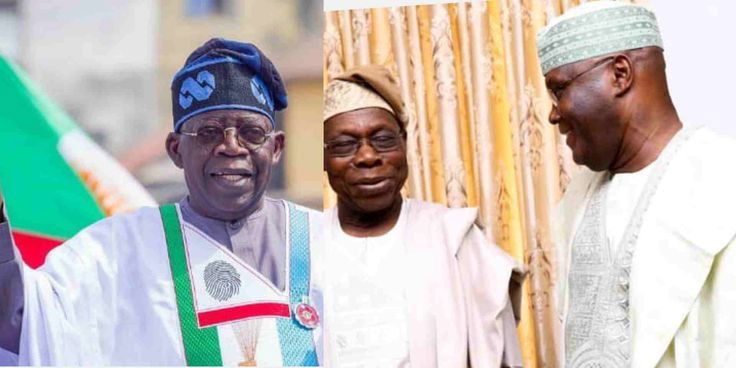
In a compelling turn of events, Atiku Abubakar, Nigeria's opposition leader who secured the second position in the presidential poll held on February 25, led a protest on Monday alongside his supporters to challenge the election results. The electoral body had declared Bola Tinubu of the ruling All Progressives Congress (APC) as the winner, set to take over from President Muhammadu Buhari in May.
Despite nearly 25 million people casting their ballots in what was generally a peaceful vote, it was marred by extended delays and technical issues, leaving voters and opposition parties frustrated and alleging widespread vote-rigging.
Clad in black attire, Atiku Abubakar's supporters, as well as members of his Peoples Democratic Party (PDP), marched to the Independent National Electoral Commission (INEC)'s headquarters in Abuja to submit a petition, accusing the electoral body of electoral fraud.
Iyorchia Ayu, the PDP chairman, asserted that INEC had "direct involvement in aiding and abetting the monumental rigging and manipulation of the election results in favor of the ruling party." The mood among the protesters was one of deep concern, with banners reading "Save our democracy" and "INEC is corrupt."
While INEC acknowledged technical difficulties on the day of the vote, they vehemently rejected claims of fraud. Nevertheless, Peter Obi of the Labour Party, who secured the third position in the election, also contested the results and pledged to go to court to prove he won the presidential race.
Atiku Abubakar, running for president for the sixth time, has not definitively stated whether he will go to court but is consulting with lawyers to "decide the next line of action."
Nigerian elections have historically been marred by allegations of fraud. In an effort to enhance transparency, INEC introduced biometric voter identification and IReV, a central online database for uploading results, at the national level for the first time this year. However, some voters and opposition parties argued that system failures during result uploads allowed for ballot manipulation and created discrepancies between manual and online results.
Challenges with the new technology also led to significant delays and long queues, discouraging some voters from participating. Despite a registered voter count of 93.4 million, the voter turnout barely exceeded 27 percent, even lower than in the 2019 election.
INEC has committed to addressing the concerns raised by parties and voters ahead of crucial governorship and local assembly elections scheduled for the coming Saturday, aiming to restore faith in Nigeria's electoral process.